SUMMARY
This is AI generated summarization, which may have errors. For context, always refer to the full article.
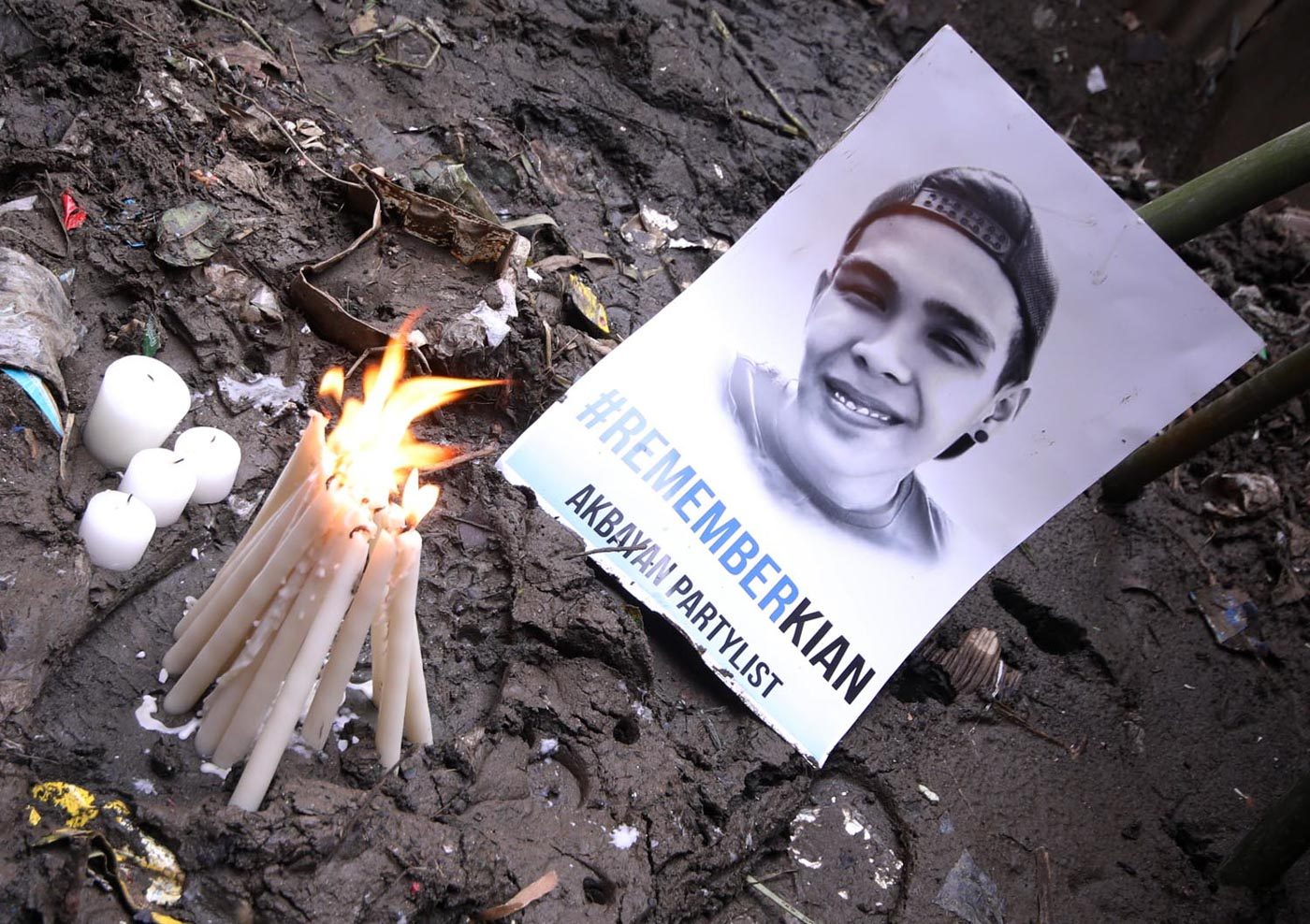
It has been 3 years since Kian delos Santos, a 17-year-old student, was killed by Filipino policemen in a high-profile case that gripped the world, including the United Nations.
The policemen in Delos Santos’ case have already been convicted, but the killings in President Rodrigo Duterte’s anti-drug campaign continue unabated.
No other policemen in Duterte’s drug war have been convicted except those in Delos Santos’ case.
Delos Santos was among the victims in what UN rights chief Michelle Bachelet flagged as a system of killings under Duterte.
On August 16, 2017, a team of cops dragged Kian in a dark alley and shot him dead, saying later in a police report that he was a drug suspect who fought back. (LISTEN: [PODCAST] KRIMINAL: The boy named Kian)
A camera caught them dragging a figure believed to be Kian, triggering national outrage against a police force that, at that time, had already killed thousands of drug suspects and painted them as dangers to their lives.

Investigations into the case have since established that Kian was killed helpless. He did not fight back. (READ: PNP, PAO agree: Kian kneeling when killed)
In November 2018, Police Officer 3 Arnel Oares, Police Officer 1 Jeremias Pereda, and Police Officer 1 Jerwin Cruz were sentenced by a Caloocan court to reclusion perpetua, or imprisonment for 20 to 40 years, without eligibility for parole. They were convicted of murder.
The conviction does not stop the anti-drug campaign.
As of August 2020, around 6,000 to 8,000 drug suspects have been killed by cops under drug operations depending on who is keeping count. The Philippine government acknowledges at least 5,700 killings after rolling back on 6,600-death count in July 2019. The United Nations estimates over 8,600.
Human rights groups, meanwhile, believe around 30,000 have been killed, including drug-related killings outside police operations. (READ: Coronavirus doesn’t stop Duterte’s anti-drug campaign)
The Duterte government was quick to describe the conviction as justice being served.
“It shows that this country has a robust judicial system,” Presidential Spokesperson and Chief Legal Counsel Salvador Panelo said at the time.
However, no more convictions have been handed down against policemen accused of going rogue and killing drug suspects without basis. (READ: TIMELINE: Seeking justice for Kian delos Santos)

Out of fear, families refuse to file complaints while witnesses refuse to come forward fearing reprisal from perpetrators. Some say they will just file a case after the Duterte administration.
Despite previous assurances of cooperation, the Philippine National Police still rejects any request for documents from the Commission on Human Rights, blocking independent investigations. (READ: 4 years on, climate of fear and impunity blocks justice for Duterte’s drug war victims)
Even the family of Kian delos Santos acknowledged this. In an interview with Rappler, Delos Santos’ uncle, Randy delos Santos said Kian’s was a special case where they got “lucky.”
“Mahirap [ang hustisya] lalo na sa kagaya namin na maliliit. Nagpapasalamat na lang ako na maraming tumulong, lahat nagtulong-tulong dito. ‘Yun ang dahilan kung bakit naging espesyal ang kaso ni Kian,” Delos Santos told Rappler in a phone interview.
(Seeking justice is difficult especially for us small folks. I am just thankful that many helped, that everybody helped us. That’s the reason why the case of Kian became special.) – with a report from Jodesz Gavilan/Rappler.com
Add a comment
How does this make you feel?


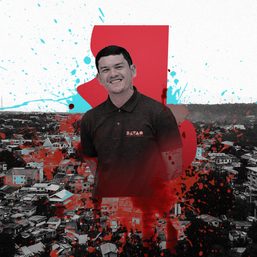
![[EDITORIAL] Hustisya sa Jemboy case: Tinimbang ka ngunit kulang](https://www.rappler.com/tachyon/2024/03/animated-jemboy-baltazar-killing-verdict-carousel.jpg?resize=257%2C257&crop=257px%2C0px%2C720px%2C720px)
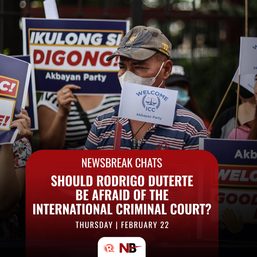
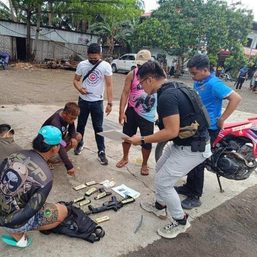

![[Rappler Investigates] The guns of Apollo Quiboloy](https://www.rappler.com/tachyon/2024/04/quibs-guns-carousel.jpg?resize=257%2C257&crop=412px%2C0px%2C1280px%2C1280px)
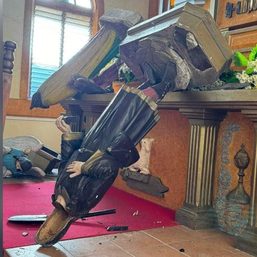
There are no comments yet. Add your comment to start the conversation.